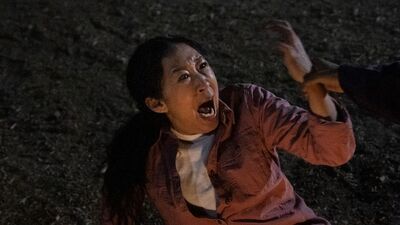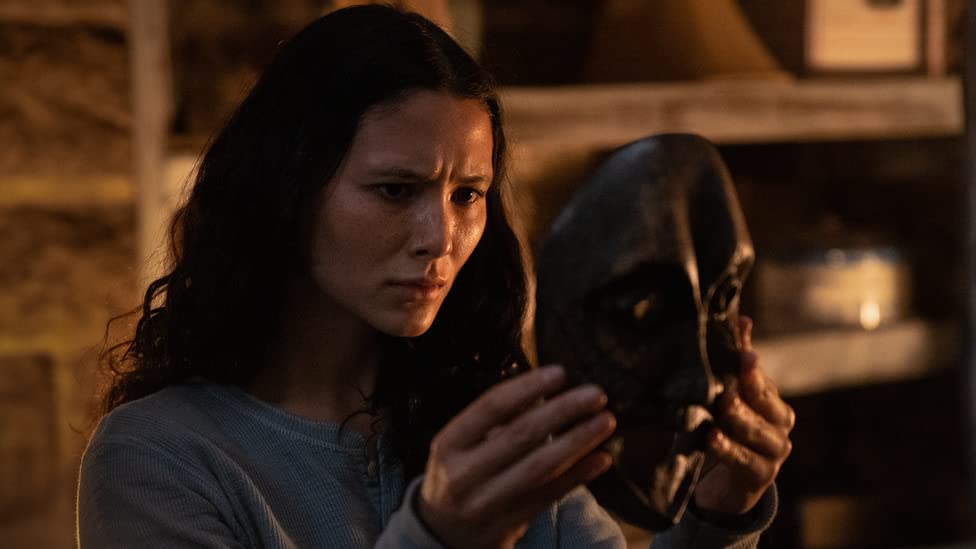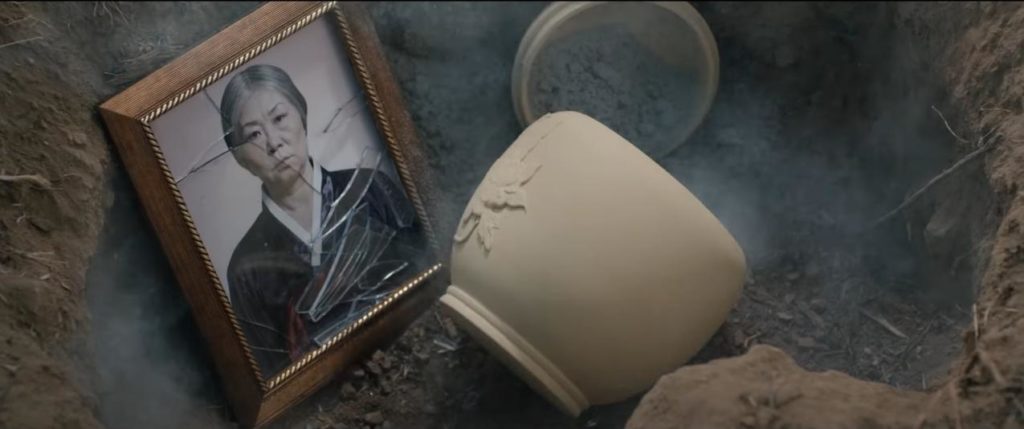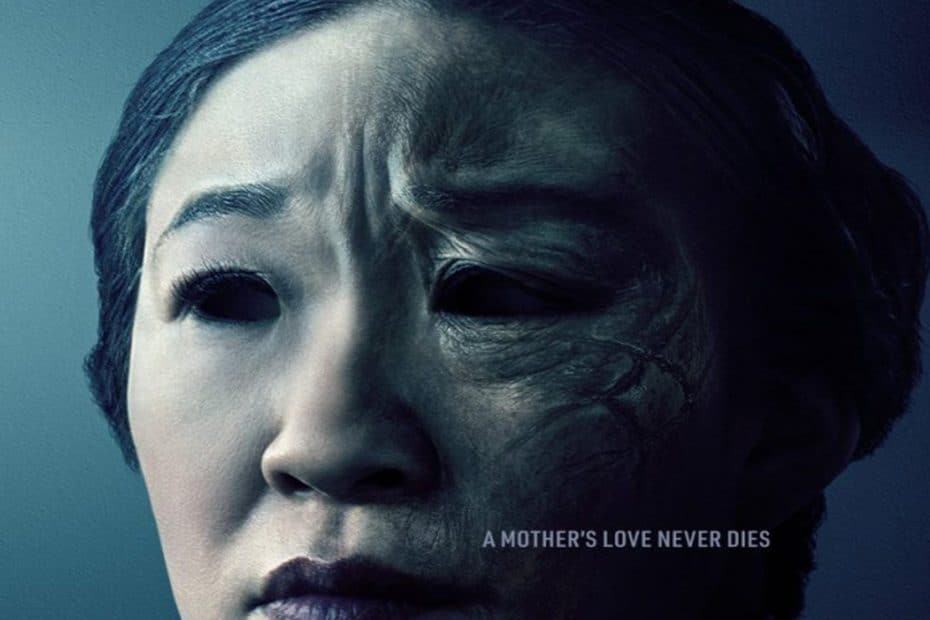By Valkyrie Kerry and Brett Dyer
Umma is essentially built on a good premise, unfortunately the narrative shows its hand at the beginning making the rest of the story predictable. The opening sequence comprises two scenes; a child electrocuted by her mother for attempting to run away, and the child Soo-Hyun as an adult hiding all electrical appliances in the basement whilst her daughter cries upstairs.
The story then picks up sixteen years later when the baby, Chris, is a teenager with aspirations of attending college. Soo-Hyun and Chris live off of the grid, they own a remote apiary and Soo-Hyun prohibits any electrical goods from entering the property. Soo-Hyun suffers from night terrors, particularly when triggered by an electrical storm. She envisages her mother, and though Chris comforts her and thus adopts the maternal role, she is unaware of the nature or cause of her mother’s fears.


Soo-Hyun’s uncle arrives unannounced to inform her of her mother’s death some months earlier, and to provide her with her mother’s belongings and ashes so that she may give her a ‘Jesa,’ funerary rites that release the ancestors from their earthly torments. The uncle is concerned that Soo-Hyun has broken from Korean language and tradition and reminds her that it is the child’s duty to care for the parents both now and in the hereafter. If the Jesa is not performed the sufferings will evolve into a poison to be inflicted on the child.
As Soo-Hyun becomes aware of her daughter’s impending departure to college, and simultaneously comes to terms with her mother’s wrathful spite towards her as a child, the manifestations and voices develop. The characters of Soo-Hyun and her mother merge and struggle for control, but is it an apparition or is Soo-Hyun delusional? That is the question that drives the narrative.
The premise lays the foundations for what could be an interesting ghost story or psychological horror, unfortunately Umma simply does not deliver. It is one of those films that cram so many clichés into the narrative that, for the audience, if falls into a lost stack of a long line of ghost films. In short, it brings nothing new to the genre. It tries very hard to carry the eeriness of Ju-On or The Ring, whilst offering an ambience akin to The Others but lacks any sense of foreboding.

The bees echo the sounds of Soo-Hyun’s much feared electricity, yet as a plot device the apiary is largely wasted. In one scene reminiscent of The Amityville Horror the bees form a ring around the window and block out most of the sun’s glare. It is a nice touch but is over all too quickly and any sense of haunting is lost as the moment is rushed. Similarly, the camera angles attempt to tilt the image and offer a juxtaposition within various scenes, much like Jordan Peele’s films, but instead of being evocative the angles come across as awkward and forced.
Umma struggles to address both a mother’s fear of her child leaving and dying alone, and the difficulties of living between two cultures. The former point is heavily pressed upon resulting in a repetitive script. The film tells the audience what is occurring as opposed to showing it. Equally, the script becomes quite tedious, and, even with the attempts at creating a haunting environment, slows the film down substantially. Although Umma attempts to tackle mental illness and the cyclical effects of child abuse this is somewhat lost within an indecisive narrative. This is either a ghost story or a psychological horror, and it tends to veer towards the former, clouding the mental illness angle.
The premise of Umma is interesting, as is some of the potential symbology such as the bees, the use of masks, animal iconography and electricity, unfortunately all aspects seem to falter and remain largely unused or poorly explained. Dark Water offers a more subtle, yet spectacular approach to the same subject matter, regrettably Umma does not live up to the precedent set by this earlier mother-daughter ghost story.

